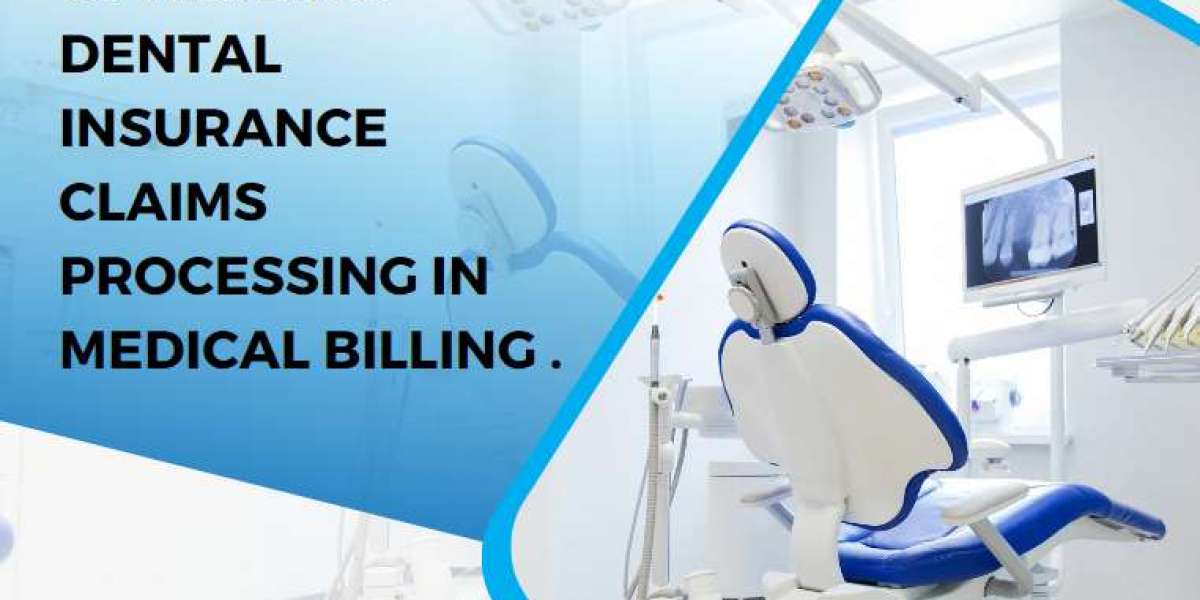Introduction:
In the intricate landscape of healthcare billing, dental practices often encounter unique challenges when processing insurance claims. While the focus primarily remains on providing quality dental care to patients, the administrative burden of navigating dental insurance claims can be overwhelming. Optimizing dental insurance claims processing is crucial for ensuring timely reimbursements and maintaining the financial health of the practice. This article explores strategies to streamline dental insurance claims processing within the broader realm of medical billing services.
Understanding the Complexity of Dental Insurance Claims:
Unlike traditional medical insurance, dental insurance operates under a separate set of rules and guidelines. Dental procedures, codes, and terminology differ significantly from those in general medical practices. Moreover, dental insurance plans vary widely in coverage, limitations, and reimbursement rates, adding another layer of complexity to the billing process.
Challenges Faced by Dental Practices:
Coding Accuracy: Proper coding is essential for dental insurance claims to be processed efficiently. However, the vast array of dental procedures and codes can lead to errors if not accurately documented.
Preauthorization Requirements: Many dental insurance plans require preauthorization for certain procedures. Failing to obtain preauthorization can result in claim denials and delayed payments.
Coordination of Benefits (COB): Dental practices often need to coordinate benefits with patients who have multiple insurance plans. Managing COB effectively is critical to avoid claim processing delays.
Claim Denials and Rejections: Dental claims are susceptible to denials and rejections due to errors in documentation, incomplete information, or non-covered services. Resubmitting denied claims consumes valuable time and resources.
Strategies for Optimizing Dental Insurance Claims Processing:
Invest in Training and Education: Continuous training for dental staff on coding guidelines, insurance verification processes, and claim submission procedures is essential. By staying updated on industry changes and best practices, staff can minimize errors and improve efficiency.
Utilize Dental Practice Management Software: Implementing dental practice management software that integrates with medical billing services can streamline claims processing. These software solutions often feature built-in coding libraries, automated claim submission, and real-time eligibility verification.
Conduct Regular Audits: Periodic audits of dental insurance claims help identify recurring errors or patterns that may be contributing to claim denials. Addressing root causes proactively can prevent future issues and optimize reimbursement.
Enhance Communication with Payers: Establishing open lines of communication with dental insurance companies is crucial for resolving claim disputes and obtaining clarification on coverage policies. Building positive relationships with payers can expedite claim processing and reduce delays.
Implement Electronic Data Interchange (EDI): Leveraging EDI for electronic claim submission accelerates the claims processing timeline compared to traditional paper-based methods. EDI allows for faster claim submission, processing, and payment turnaround times.
Stay Updated on Coding Changes: Regularly review updates to dental coding guidelines and reimbursement policies to ensure accurate claim submission. Incorporate these changes into practice workflows to minimize coding errors and maximize reimbursements.
Offer Patient Education and Support: Educate patients about their dental insurance coverage, including copayments, deductibles, and coverage limitations. Providing clear explanations of out-of-pocket expenses can help prevent misunderstandings and reduce billing inquiries.
Also know how custom .net development can help your business.
Conclusion:
Optimizing dental insurance claims processing is essential for the financial stability and success of dental practices. By addressing coding accuracy, preauthorization requirements, coordination of benefits, and claim denials, practices can streamline the billing process and improve reimbursement rates. Investing in staff training, utilizing practice management software, conducting regular audits, and enhancing communication with payers are key strategies for optimizing dental insurance claims processing within the broader framework of medical billing services. By implementing these strategies, dental practices can navigate the complexities of dental insurance billing more efficiently and focus on delivering exceptional patient care.








